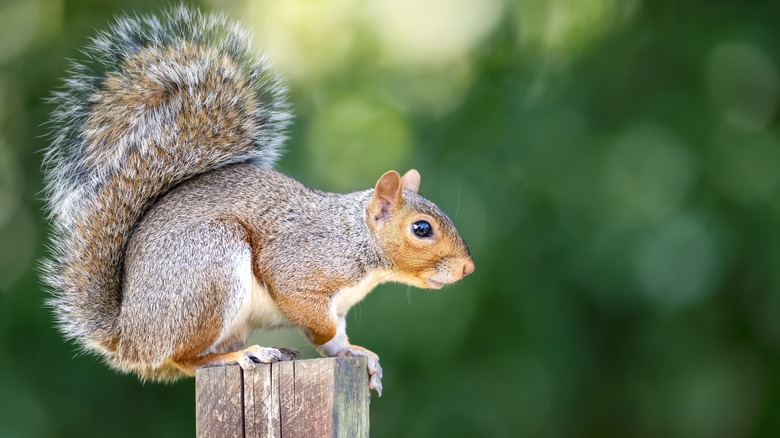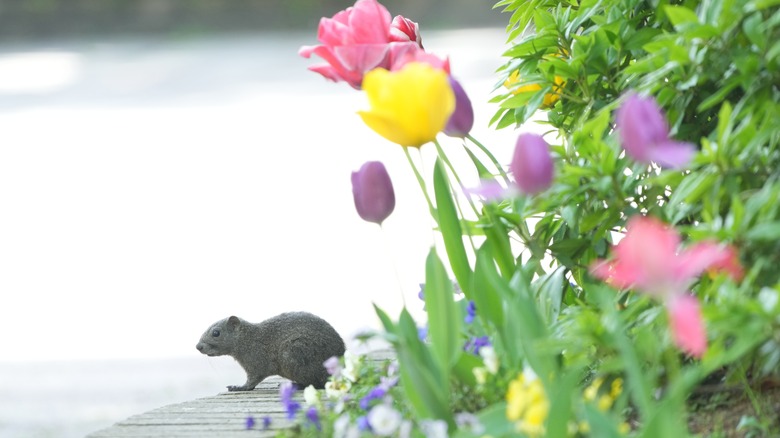The Squirrel-Attracting Flowering Plant You Might Not Want To Grow In Your Garden
When it comes to divisive topics in the realm of outdoor maintenance, squirrels are often among them. Some homeowners purposely attract squirrels to their gardens, but others understandably want these rodents to steer clear of their gardens due to the sheer damage they can cause. Unfortunately, it can be difficult to keep squirrels out of your garden once they find food sources. One tactic that might help control unwanted squirrels involves avoiding planting certain items that squirrels might consider food. Among these include certain flowering plants, such as tulips (Tulipa spp).
Tulips are admittedly some of the most popular cut flower choices, as well as those that can be planted in home gardens. They are synonymous with everything spring, and gardeners now have options beyond growing annuals, as many perennial tulip cultivars can now bloom for three to four years. Of course, the longevity of your plants depends on avoiding the mistakes everyone makes when growing tulips in the garden, as well as whether outdoor critters may get to the plants before they ever get a chance to bloom. Squirrels are among the many animals that target tulips, and they particularly like digging up recently planted bulbs to feast upon due to their starchiness. Instead of tulips and other reported squirrel favorites, such as lilies and crocus, you might focus on planting bulbs that may be less attractive to squirrels. Daffodils are one option that may be off-putting to these animals.
How to manage squirrels if you already have tulips in your garden
Given the dangers squirrels can pose to tulips, it may not be worth planting them at all. Some gardeners might not feel it is worth the effort, especially if there are already a lot of squirrels around their homes. While planting tulips around squirrels can be challenging, it's not impossible, though. You'll also likely want to protect any tulips you've already planted in your garden against these opportunistic creatures, as well as other animals that eat the bulbs and foliage of the plant: These include mice, gophers, rabbits, deer, and many others.
Methods of exclusion are the best ways you can help minimize squirrels and other wildlife from ruining your tulips. First, consider protecting recently planted bulbs with chicken wire to help prevent squirrels from digging them up. As your tulips start growing out of the soil, you'll want to remove the wire and place it around each individual plant instead. Take down all wiring once tulips bloom, as the plants are less attractive to squirrels once they reach this phase.
Whether you decide to avoid planting tulips or take measures to protect plants you already have in your garden from squirrels, know that these methods alone may not deter the rodents from your outdoor spaces. You'll also need to remove common things that are attracting squirrels to your yard and garden. Examples include any bird seed and fallen fruit and nuts from trees lying on the ground. Consider cleaning these up on a daily basis.

